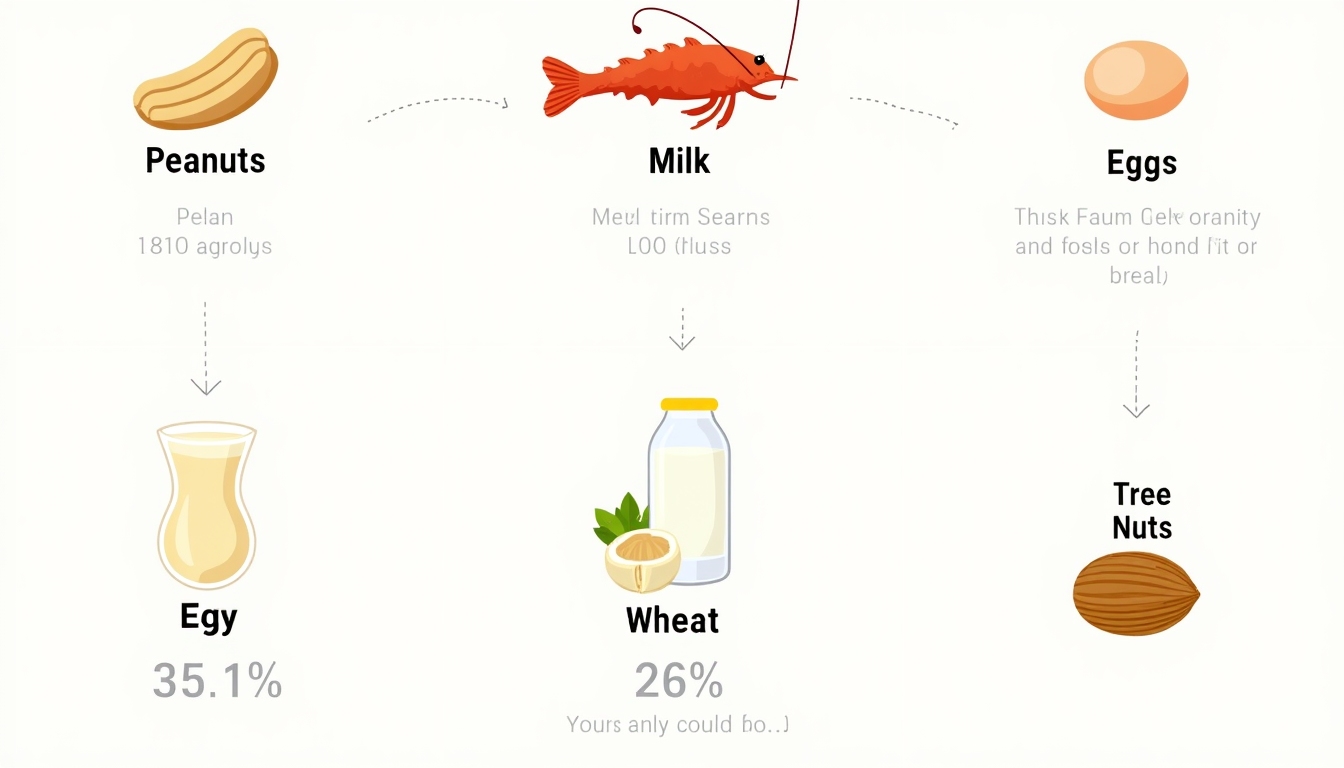Living with Chronic Food Allergies: Navigating Daily Challenges
Living with chronic food allergies requires constant vigilance and adaptation. With over 32 million Americans affected, understanding the intricacies of managing Chronic Food Allergy, including Chronic FPIES, can transform daily living.

Understanding Chronic Food Allergies
Food allergies are more than just mild inconveniences; for many, they are a chronic condition that poses serious health risks. This becomes even more challenging for those dealing with Chronic Food Allergy or conditions like Chronic FPIES (Food Protein-Induced Enterocolitis Syndrome). Individuals living with these conditions must be perpetually cautious about what they eat, often impacting their social and emotional well-being.
Key Points: - Approximately 32 million people in the United States have food allergies. - Allergies can lead to severe reactions, requiring immediate medical attention. - It’s essential to identify and avoid allergens effectively.

The Impact of Chronic FPIES
Chronic FPIES is a rare but severe gastrointestinal condition triggered by food ingestion, primarily affecting infants and young children. Unlike other food allergies, FPIES does not provoke immediate symptoms such as hives or swelling. Instead, it can result in severe vomiting and diarrhea, leading to dehydration or shock.
Example Personal Insight: "When my child was diagnosed with Chronic FPIES, it was overwhelming. We had to scrutinize every ingredient because even a small amount of certain foods could trigger a severe reaction. This vigilance changes how we shop, cook, and dine out."
This example highlights the rigorous attention required for effective management.

Adapting Your Lifestyle
Living with chronic food allergies mandates a lifestyle adaptation. This includes establishing a reliable routine for checking food labels, consulting with allergists, and educating oneself about cross-contamination. For families, this might mean implementing strict rules at home or ensuring that schools and caregivers are fully informed.
Steps for Managing Chronic Food Allergies:
- Ingredient Awareness: Always read food labels carefully. Ingredients can change without notice, and cross-contamination is a constant risk.
- Communication: Keep an open line of communication with relatives, friends, and school staff about allergic conditions and management practices.
- Medical Readiness: Always have necessary medications on hand, such as antihistamines or epinephrine auto-injectors.

Support and Mental Health
Chronic food allergies don't only affect physical health—they can also impact mental well-being. It's not uncommon for individuals or families to experience anxiety regarding food intake or meals outside the home. Support groups and professional counseling can be invaluable.
Strategies for Emotional Support: - Join Support Groups: Online forums and local meetups provide networks where individuals can share experiences and advice. - Seek Counseling: Therapists specializing in chronic illness management can offer coping strategies. - Educate Others: Encouraging friends and family to learn about allergies can foster a supportive environment.

Conclusion and Moving Forward
Living with chronic food allergies, including conditions like Chronic FPIES, demands resilience and knowledge. While the challenges are significant, individuals can lead fulfilling lives with careful planning and support.
Remember: Every person and situation is unique. Continuous education and communication are key to safely navigating these challenges. As awareness grows, so do solutions—helping individuals and families thrive despite food allergies.
Related Articles:
For more information, consider exploring these insightful read pieces:
- "Top Strategies for Managing Food Allergies at School"
- "Understanding Food Allergen Labeling Laws"
- "Mental Health and Chronic Illness: Finding Balance"
- "Nutrition for Allergic Individuals: Safe and Nutritious Alternatives"
- "The Role of Allergen Immunotherapy in Modern Treatment"
Discuss Here